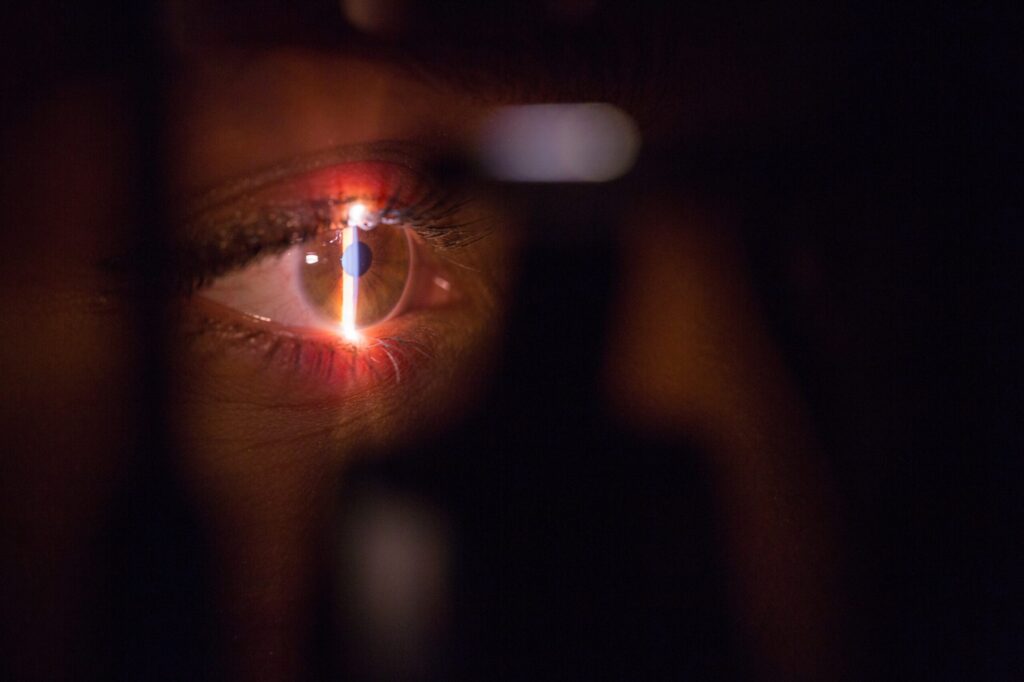Encouraging Arab Americans to Prioritize Vision Health Care

A recent study found that, compared to white Americans, Arab Americans display higher age- and sex-adjusted proportions of cataracts, dry age-related macular degeneration, glaucoma, and diabetic retinopathy. To be more specific, Arab Americans were found to be 19% more likely to have cataracts and 272% more likely to have diabetic retinopathy. These figures suggest that the burden of cataracts and diabetic retinopathy is significantly higher among Arab Americans in comparison to white populations.
Within Arab American families, cultural values and norms play a significant role in treatment decisions and beliefs. Although the healthcare system in the Muslim world is modern, high-tech, and rivals those in the West, it’s undeniable that much of our modern practices remain aligned with our cultural and religious heritage. This is reflected in the way we regard the cause of illnesses, which encompasses both supernatural beliefs (like envy or the evil eye) and biomedical explanations, as well as our penchant for traditional medicine despite the lack of evidence-based scientific data on its safety or efficacy. To encourage you and your loved ones to prioritize vision health care, below are some simple tips.
Practice good eye health habits
As you age, changes in eyesight are to be expected. However, if neglected, you risk affecting your independence and overall quality of life. In order to preserve your eyesight, it’s necessary to practice good eye health habits. This includes staying active to avoid weight-related problems that can affect your vision, wearing your prescribed glasses, handwashing before touching your eyes especially when wearing or removing contacts, using sunglasses to protect from UV rays, and resting your eyes if you spend a lot of time in front of a screen. To rest your eyes, practice the 20/20/20 rule. Turn away from your screen every 20 minutes, then look at something 20 feet away for 20 seconds.
Go for regular checkups
When it comes to vision health, many things can go unnoticed for a long time. As such, a comprehensive eye exam is vital for catching problems early when treatment is most effective. You can book an appointment online, and some eyewear retailers even offer eye exams in-store so you no longer have to make separate trips to see an eye doctor and purchase your glasses. Eye exams are especially important for older adults aged 65 years old and above to check for age-related eye diseases. A comprehensive eye exam yearly or at least once every other year is highly recommended for seniors. Even younger members of your family should also get their turn, at least annually, to make sure everything with their vision is in order.
Supplement your diet with foods that benefit eye health
Studies show that foods containing omega-3 fatty acids, copper, lutein, and zeaxanthin are vital for eye health. One way to consume omega-3 fatty acids is by incorporating oily fish into your diet like tuna, salmon, trout, and mackerel. There has even been evidence suggesting that fish oil can reverse dry eyes, including dry eyes caused by spending too much time in front of a screen. Nuts and legumes such as walnuts, peanuts, cashews, and lentils also contain omega-3 fatty acids and are high in vitamin E which can protect the eye from age-related damage. Doctors also recommend citrus fruits, leafy green vegetables, carrots, and sweet potatoes. Even with a halal diet, there are many options to choose from.
Ultimately, we can’t ignore studies that point out that trends within our culture indicate a reliance on folk remedies and self-prescribed treatments, potentially leading to delayed care and use of non-approved remedies, especially when it comes to eye health care. However, we can make the most of modern medicine and traditional practices to prioritize our vision health.
Arab healthcare has deep historical roots, with influential Muslim scholars contributing to medical knowledge. Hospitals emerged in the Islamic world, and therapeutic methods included baths, exercise, diet, and medications. At the end of the day, we should strive to find a balance between evidence-based traditional remedies and modern forms of medicine in order to prioritize not just our vision but our overall well-being.
Please note that this post was written by a contributor and does not necessarily reflect the views of Arab America’s employees. These posts help allow Arab America to keep producing our wonderful original content.
Don’t forget to check out Arab America’s blog!


